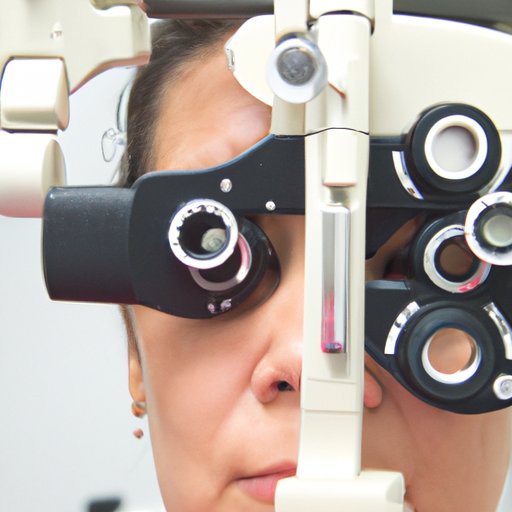
Introduction
Most of us take our eyesight for granted until we experience problems. However, regular eye exams are essential to maintaining good eye health and preventing vision loss. In this article, we will explore how often you should get an eye exam and why it is important.
What is an eye exam and how does it work?
An eye exam is a series of tests that assess the health of your eyes and can detect vision problems. During an eye exam, an eye doctor will check your visual acuity, eye movements, and the structure of your eye.
Optometrists and ophthalmologists are both eye doctors, but they have different levels of training. Optometrists primarily provide vision care services and prescribe glasses and contact lenses. Ophthalmologists are medical doctors who specialize in eye care and can perform eye surgery.
The importance of regular eye exams
Regular eye exams are important for several reasons. They can detect vision problems early on when they are easier to treat. Eye exams can also detect signs of serious eye diseases and conditions.
The benefits of early detection cannot be overstated. Early detection of eye conditions like glaucoma and cataracts can prevent vision loss or even blindness. Therefore, people of all ages should make regular eye exams a part of their healthcare routine.
Recommended frequency of eye exams for different age groups
The recommended frequency for eye exams varies depending on age and overall health. Children should have their first eye exam as early as six months of age. After that, they should have an exam at least once every two years, unless they experience vision problems or have a family history of eye conditions.
Adults should get their eyes examined at least once every two years if they have no symptoms or risk factors. If you wear glasses or contact lenses, have a family history of eye conditions, or have a chronic health condition like diabetes, you should get an exam more often.
Eye exams for people with particular eye conditions
People with certain eye conditions require more frequent eye exams to monitor their eye health. For example, people with diabetes should have a dilated eye exam at least once a year to check for diabetic retinopathy, a condition that can cause blindness if left untreated. Even if you have 20/20 vision or have never had vision problems, it is essential to see an eye doctor regularly.
Types of eye exams and how often they should be conducted
There are two main types of eye exams: routine eye exams and comprehensive eye exams. A routine eye exam is a basic exam that checks your vision and eye health. You should have a routine exam at least every two years if you have no symptoms or risk factors.
A comprehensive eye exam is a more in-depth exam that can detect eye diseases and conditions. This type of exam is recommended for people with risk factors or those who have symptoms of an eye condition. People over the age of 60 should have a comprehensive eye exam every year to check for age-related eye diseases like macular degeneration and cataracts.
Misconceptions about eye exams
One common misconception about eye exams is that they are only necessary for people who have vision problems. The truth is, many serious eye conditions do not have early symptoms, making regular eye exams even more critical.
Another misconception is that getting an eye exam is expensive. However, many insurance plans cover the cost of eye exams, making them affordable for most people.
Actionable steps to help readers take care of their eyes
To take care of your eyes, you can take several steps between eye exams. Wearing sunglasses to protect your eyes from UV rays is essential. A healthy diet rich in fruits and vegetables is also good for eye health.
If you spend a lot of time in front of the computer or television, practice the 20-20-20 rule to avoid eye strain. Every 20 minutes, take a 20-second break and look at something 20 feet away. Finally, avoid smoking, which can increase your risk of age-related eye diseases.
Conclusion
Regular eye exams are essential to maintaining good eye health and preventing vision loss. The recommended frequency of eye exams varies depending on age and overall health. People with particular eye conditions may require more frequent exams to monitor their eye health.
To take care of your eyes, you can practice good eye hygiene and take actionable steps like wearing sunglasses and eating a healthy diet. So, take care of your eyes, and don’t let eye problems sneak up on you.





